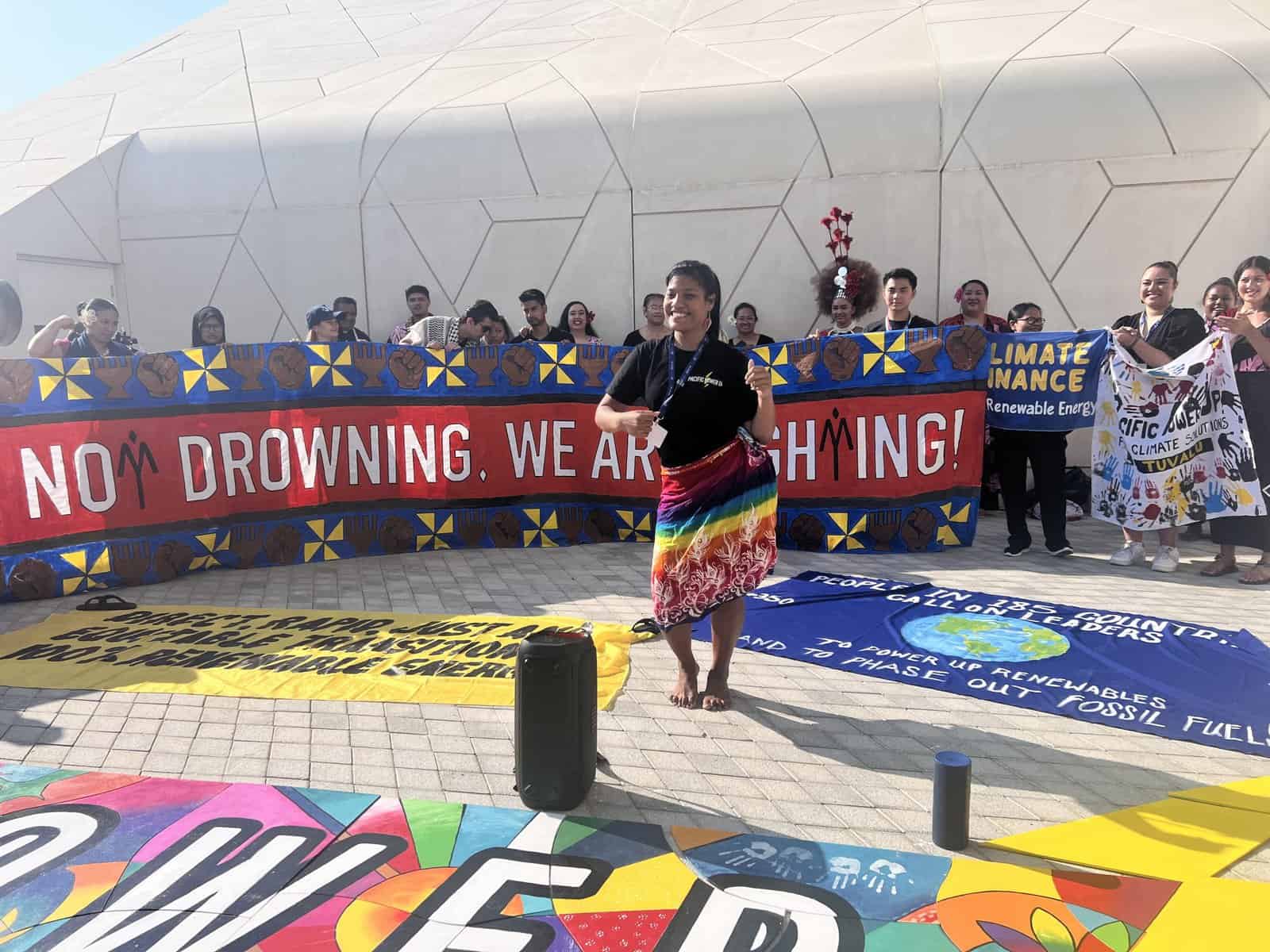Pacific climate champions chanted ‘hold the line’ at COP28 late last week amid concerns about the direction of the climate talks.
Pacific climate activist Drue Slatter told Islands Business the presence of 2456 fossil fuel lobbyists in Dubai is “concerning to civil society because the perpetrators of the climate crisis shouldn’t be able to write climate policy.”
Slatter continues: “We came into COP with very clear demands that we need a scale up of renewable energy, our people need access to renewable energy, and there’s potential for renewable energy to be set at COP, but that would mean nothing without a phase out of fossil fuels.”
She adds: “The science is clear that in order to stay at 1.5 emissions, there could be no fossil fuel expansion.”
In the final days of COP28, there has been an increased push for so-called ‘abatement’ technologies such as carbon capture, rather than fossil-fuel phase-out.
Fiji’s Ambassador to Indonesia, Amenatave Yauvoli, who is the country’s lead negotiator, says one positive achievement has been the capitalisation of the Loss and Damage Fund.
“It’s not an empty fund because we have received pledges that have increased to over $500 million, which is good for developing countries, particularly small island developing states in the Pacific,” he said.
Representing the Youth Climate Delegation, which has been present at the negotiations as observers, Rufino Varea said while the Loss and Damage Fund was a good start, there is still much work to be done.
“One of the things that was not discussed was the replenishment cycle of the Loss and Damage Fund, which is something that really needs to be talked about amongst leaders. Another thing is the comprehensive criteria of the Loss and Damage Fund, who gets to access it, and making sure that the accessibility to the fund is just and equitable for all, particularly for small island states in the Pacific,” Varea told Islands Business.
While the message is consistent and the goal hasn’t changed, there are no illusions within the Pacific team about the complexity and challenges they will likely face.
As Slatter explains, “We know our negotiators are facing a really difficult battle to keep fossil fuels in the text, so civil society is here today at the beginning of week two to tell them to hold the line, we are here, and we are offering our support in ensuring that phasing out of fossil fuels makes it to the text.”
